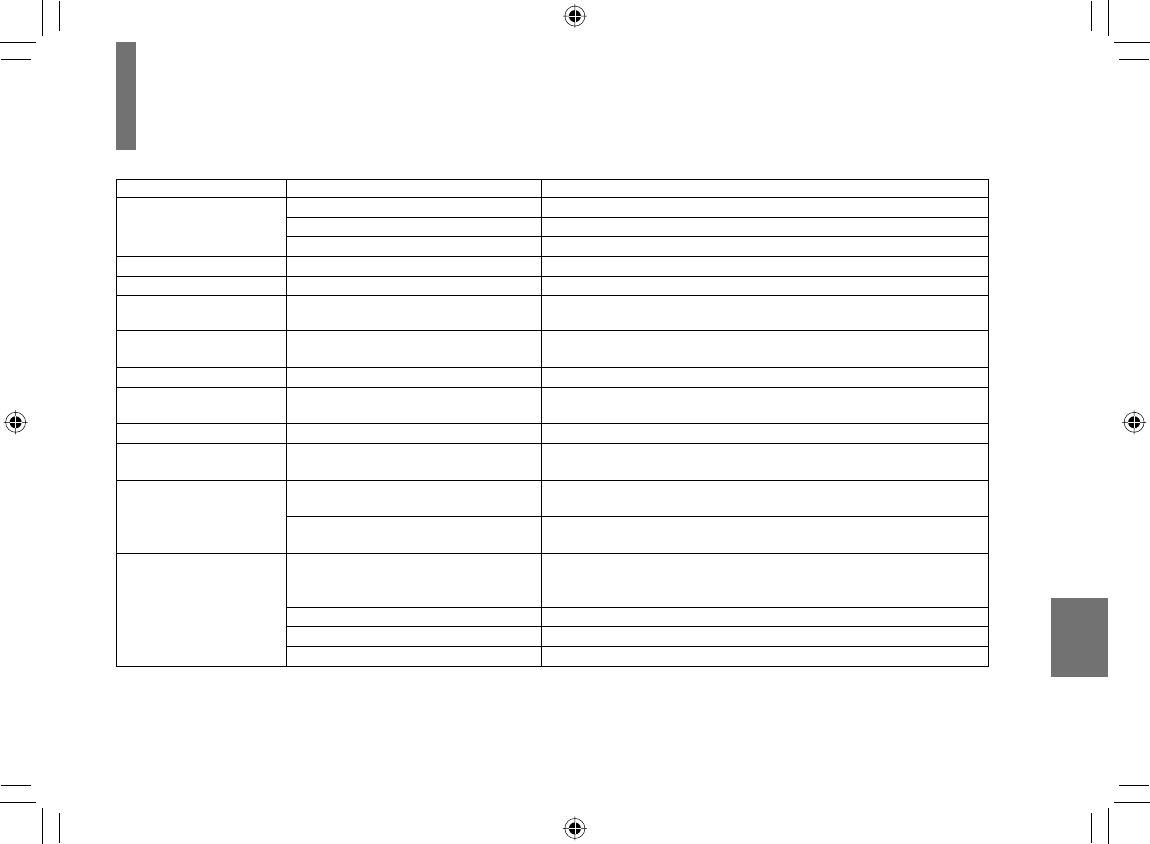
85
Others
Before calling service personnel
Symptom Cause Correction
No power. •
The AC adapter or power plug is disconnected.
• Connect the AC adapter or power plug securely.
• The battery pack has been removed. • Install the battery pack.
• Battery empty. • Re-charge the battery.
The LCD turned off by itself.
•
The automatic LCD off function turned the LCD off.
• Turn on the player again.
No TV channels.
• The aerial is not connected. • Connect the aerial properly.
No TV channels after
moving.
• Channel scan is not fi nished. • Redo channel scan.
Picture noises and
distortion.
• Interference by wave refl ection or poor
aerial connection.
• Change the position and direction of the aerial.
Dots on picture.
• Reception is disturbed by vibration. • Move the aerial away from the cause of the interference.
Stripes on picture.
• Interference by other electric
apparatuses.
• Move the aerial away from the cause of the interference.
No picture on the LCD monitor.
• The AV OUT jack is connected. • When you use the LCD of the player, unplug the AV OUT jack.
No picture. (Other than
built-in LCD monitor)
• The AV OUT jack is not connected to
the TV monitor.
• Confi rm the connection, and select the appropriate video input mode
on the TV so the picture from the player appears on the TV screen.
No picture or Sound
(When using the TV tuner.)
• The aerial connection is improperly
positioned.
• Connect the aerial properly.
• The channel scanning is not set to
channels available in your area.
• Set by scanning.
No sound. • The equipment connected via the
audio/video cable is not set to receive
DVD signal output.
• Select the correct input mode of the audio receiver so you can listen
to the sound from the player.
• The volume is too low. • Adjust the volume by pressing the volume button.
• The audio receiver or TV is turned off. • Turn on the equipment connected with the audio/video cable.
•
The setting of output sound format is incorrect.
• Select the proper audio setting.
Check the following guide for the possible cause of a problem before contacting service.


















